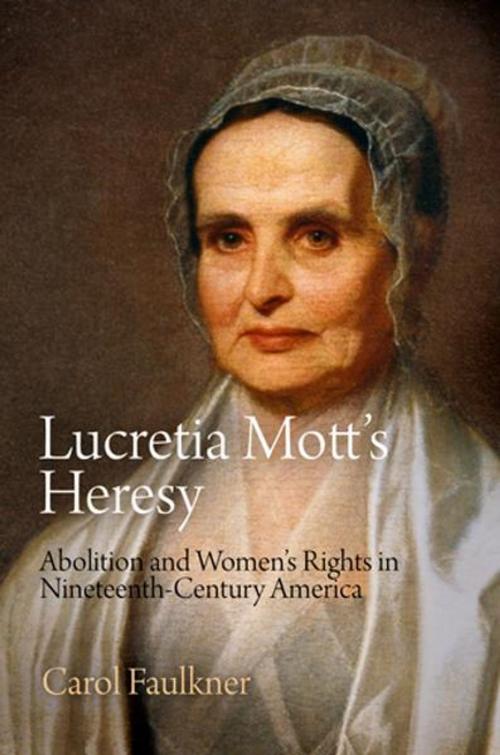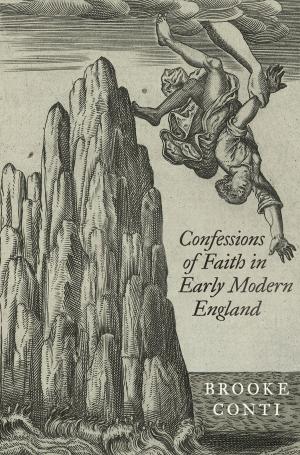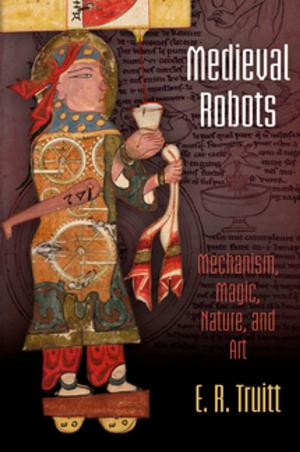Lucretia Mott's Heresy
Abolition and Women's Rights in Nineteenth-Century America
Nonfiction, Social & Cultural Studies, Social Science, Discrimination & Race Relations, History, Americas, United States, 19th Century| Author: | Carol Faulkner | ISBN: | 9780812205008 |
| Publisher: | University of Pennsylvania Press, Inc. | Publication: | May 10, 2011 |
| Imprint: | University of Pennsylvania Press | Language: | English |
| Author: | Carol Faulkner |
| ISBN: | 9780812205008 |
| Publisher: | University of Pennsylvania Press, Inc. |
| Publication: | May 10, 2011 |
| Imprint: | University of Pennsylvania Press |
| Language: | English |
Lucretia Coffin Mott was one of the most famous and controversial women in nineteenth-century America. Now overshadowed by abolitionists like William Lloyd Garrison and feminists such as Elizabeth Cady Stanton, Mott was viewed in her time as a dominant figure in the dual struggles for racial and sexual equality. History has often depicted her as a gentle Quaker lady and a mother figure, but her outspoken challenges to authority riled ministers, journalists, politicians, urban mobs, and her fellow Quakers.
In the first biography of Mott in a generation, historian Carol Faulkner reveals the motivations of this radical egalitarian from Nantucket. Mott's deep faith and ties to the Society of Friends do not fully explain her activism—her roots in post-Revolutionary New England also shaped her views on slavery, patriarchy, and the church, as well as her expansive interests in peace, temperance, prison reform, religious freedom, and Native American rights. While Mott was known as the "moving spirit" of the first women's rights convention at Seneca Falls, her commitment to women's rights never trumped her support for abolition or racial equality. She envisioned women's rights not as a new and separate movement but rather as an extension of the universal principles of liberty and equality. Mott was among the first white Americans to call for an immediate end to slavery. Her long-term collaboration with white and black women in the Philadelphia Female Anti-Slavery Society was remarkable by any standards. Lucretia Mott's Heresy reintroduces readers to an amazing woman whose work and ideas inspired the transformation of American society.
Lucretia Coffin Mott was one of the most famous and controversial women in nineteenth-century America. Now overshadowed by abolitionists like William Lloyd Garrison and feminists such as Elizabeth Cady Stanton, Mott was viewed in her time as a dominant figure in the dual struggles for racial and sexual equality. History has often depicted her as a gentle Quaker lady and a mother figure, but her outspoken challenges to authority riled ministers, journalists, politicians, urban mobs, and her fellow Quakers.
In the first biography of Mott in a generation, historian Carol Faulkner reveals the motivations of this radical egalitarian from Nantucket. Mott's deep faith and ties to the Society of Friends do not fully explain her activism—her roots in post-Revolutionary New England also shaped her views on slavery, patriarchy, and the church, as well as her expansive interests in peace, temperance, prison reform, religious freedom, and Native American rights. While Mott was known as the "moving spirit" of the first women's rights convention at Seneca Falls, her commitment to women's rights never trumped her support for abolition or racial equality. She envisioned women's rights not as a new and separate movement but rather as an extension of the universal principles of liberty and equality. Mott was among the first white Americans to call for an immediate end to slavery. Her long-term collaboration with white and black women in the Philadelphia Female Anti-Slavery Society was remarkable by any standards. Lucretia Mott's Heresy reintroduces readers to an amazing woman whose work and ideas inspired the transformation of American society.















